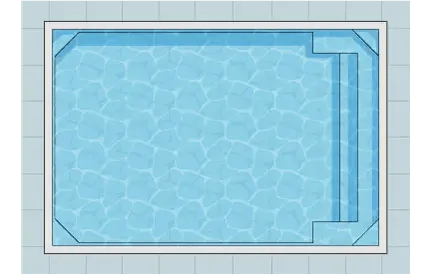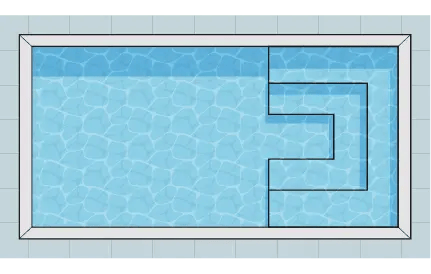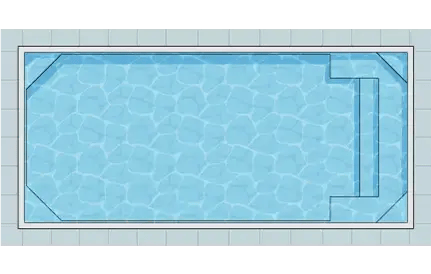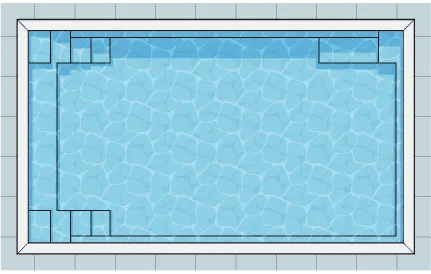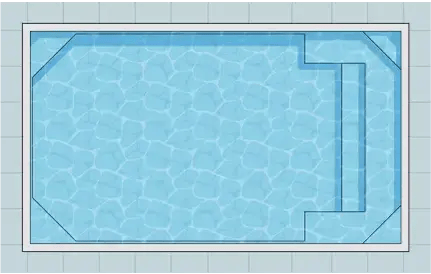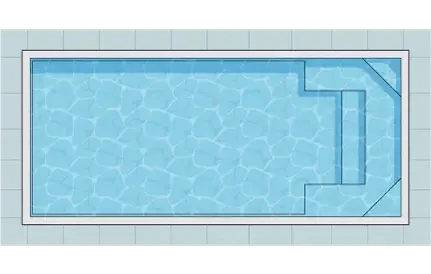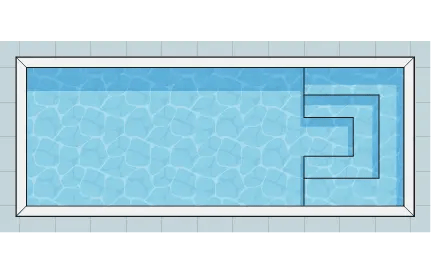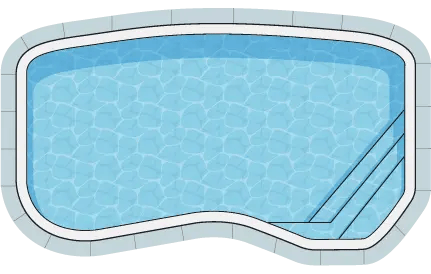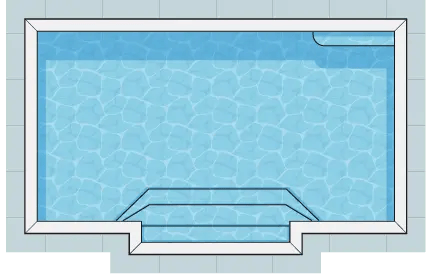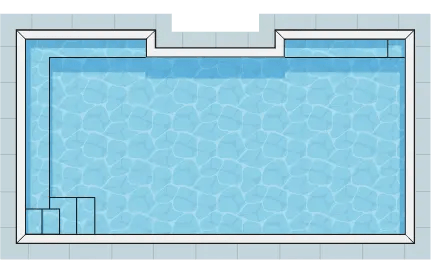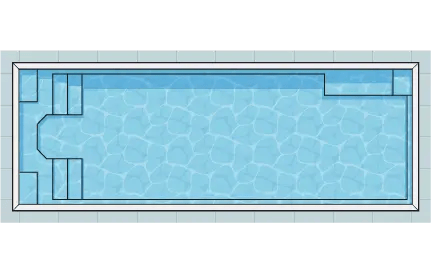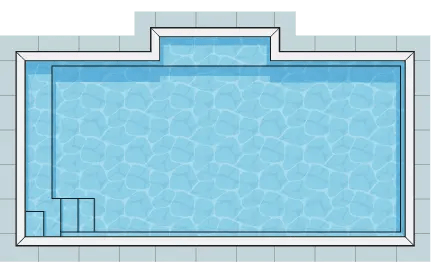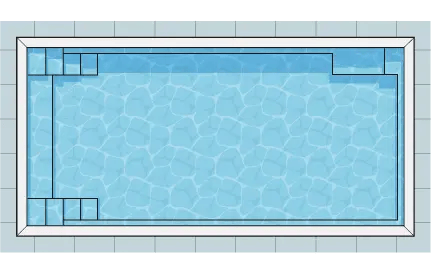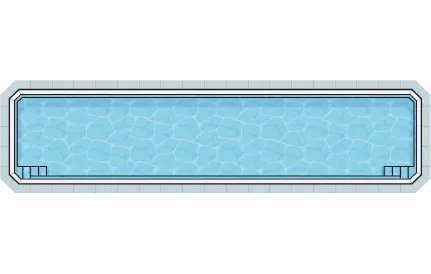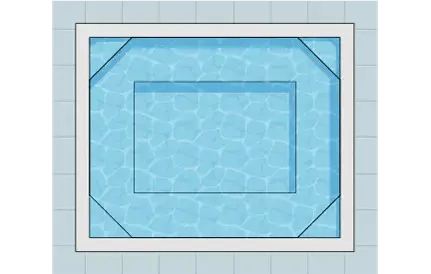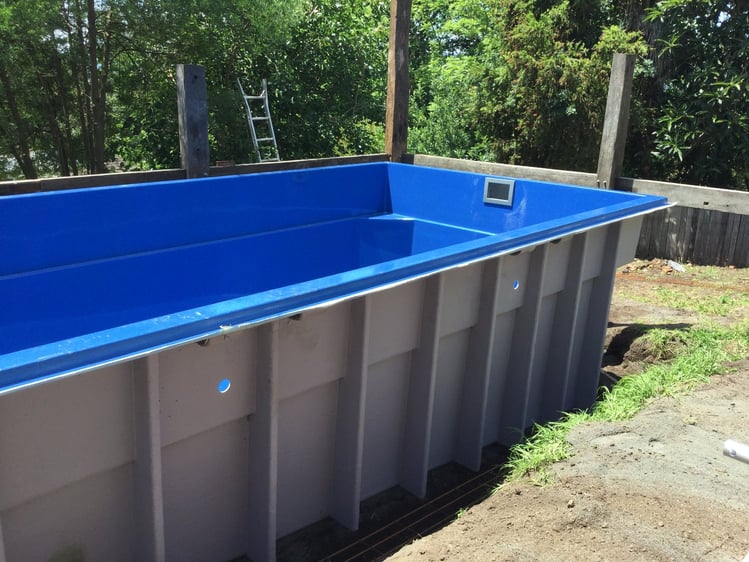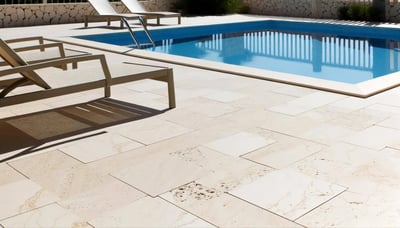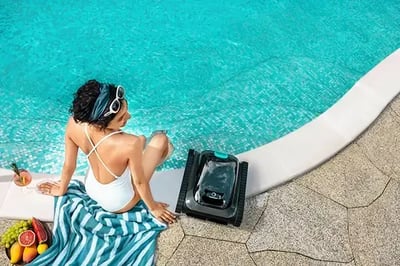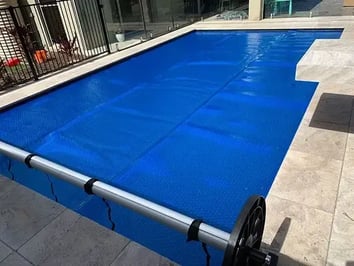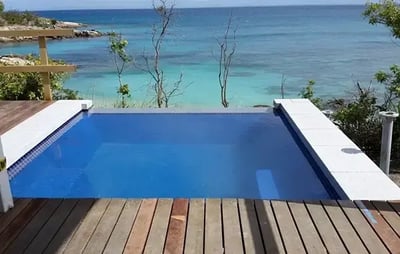Above ground fibreglass pools are a great option for backyards where an inground pool isn’t possible due to a slope or the groundworks and engineering required would be too expensive. They are also an ideal choice if you want a seamless transition from the back deck to your pool.
There are different types of above ground pools and they can vary significantly in price. A fibreglass above ground pool uses the same mould as an inground pool and looks the same as an inground pool when it’s installed but the construction is slightly different.
What is the Difference between an Inground Shell and an Above Ground Shell?
A fibreglass pool needs to be backfilled to retain its structural integrity when the pool is filled with water. An above ground fibreglass swimming pool is built with extra support ribs around the pool shell so it is strong enough to be installed above the soil. An above ground shell is placed on material such as concrete or crusher dust but the appropriate material should be discussed with the manufacturer as every site is different.
Pro Tip:
An above ground fibreglass pool will look the same as an inground pool when it is installed. The only difference is the extra support ribs that are built into the outside of the shell which you won't see when tiling and landscaping is complete.
Article Summary
|
“We speak to so many people who think a pool isn't possible for them. Our range of above ground pools can help people get the pool they've always wanted, you get the look of an inground pool on a site where you thought you would never see a pool!”.
Colm
Swimming Pool Kits Direct
Do Above Ground Pools Need a Fence?
Put simply, yes. Regulations for pool fencing differ across states and are consistently evolving to enhance water safety so check with your local Council for the most up to date regulations.
''The current Australian Standard (AS1926.1-2012) is the standard for several States and Territories but not all, with some using an older version of the standard and others adopting a modified standard. This current standard outlines the requirements for an effective barrier, specifying a fence height of at least 1.2m and a non-climbable zone of 900mm surrounding the outside of the fence.''
Royal Lifesaving Australia Report 2023.
An above ground pool in all States still needs to have a pool fence to prevent access to the ladder. A consistent requirement across the States is that all swimming pools and spas capable of holding water to a depth of 30cm or more must have a pool fence.
Do I Need Council Approval for an Above Ground Pool?
Yes. Your above ground pool needs to be approved. In NSW this can be a CDC approval or a DA approval. In Queensland, you will need to obtain approval from your local Council or private certifier. As with the pool fence requirements, the approval process varies from State to State so contact your local Council to get the most up to date information on the requirements. If you want to have some help with this then Swimming Pool Kits Direct can help put you in touch with a company who can take care of it all for you.
How Much is an Above Ground Pool?
Fiberglass above ground pool starts from $12,397 for a plunge pool shell and increases to $24,499 with the larger pool sizes. This is slightly more expensive than an inground shell, however the cost saving is in the installation. With an above ground pool there is limited cost for excavation and soil removal which makes the installation cheaper.
Buying an above ground pool as part of a swimming pool kit is also a significant cost saving. Having the pool shell and all of the filtration equipment delivered to your kerb in one package allows you to self manage the swimming pool installation. Project managing the installation and finding your own trades or taking on some of the work yourself, if you have the experience, can save you thousands of dollars.
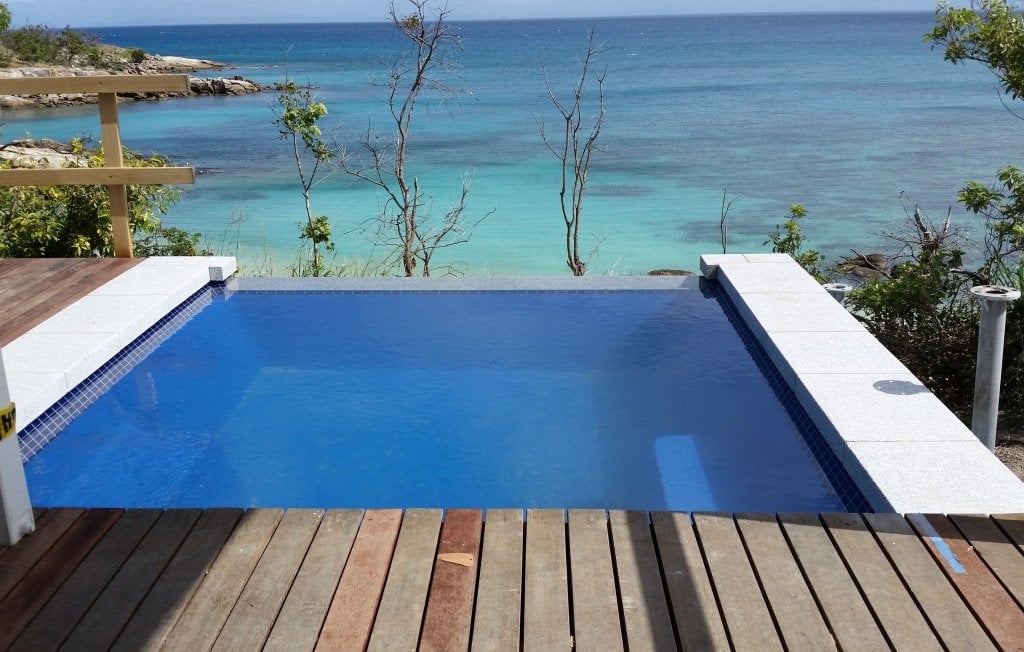 Photo: 4m Cape Classic from Swimming Pool Kits Direct
Photo: 4m Cape Classic from Swimming Pool Kits Direct
A Cheaper Swimming Pool Alternative
Vinyl Liner Pools
When talking about above ground pools it can get confusing. A common misconception is that an above ground pool is a liner pool. However, with extra engineering, an inground fibreglass pool shell can be installed above the ground. This means you get the modern look and multiple benefits of a fibreglass pool on a site that is too difficult to install an inground pool.
In Australia, a liner pool refers to a type of swimming pool construction that involves the use of a vinyl liner as the primary surface material for the pool. The pool structure is typically made of steel and the vinyl liner is installed over this framework to create the pool's interior surface. The vinyl liner acts as a waterproof barrier and provides a smooth and durable surface for the pool. A big benefit of a liner pool is the relatively lower initial cost compared to other types of pool construction. However, there are drawbacks to opting for a liner pool.
- No Added value to your house: Liner pools do not add value to your house like a concrete or fibreglass swimming pool.
- Durability Concerns: The vinyl liner can be susceptible to punctures, tears, or fading over time. Sharp objects, pool toys, or even pet claws may damage the liner, leading to the need for repairs or replacement.
- Replacement Costs: Over the years, the vinyl liner will inevitably wear out and need replacement. This replacement typically occurs every 7 to 15 years, depending on factors such as usage, maintenance, and exposure to sunlight.
- Limited Design Options: While there's some flexibility in design, liner pools may not offer the same level of customisation as other pool types like concrete or fibreglass pools. Most liner pools are an oval shape and don’t have the modern clean lines of a premium pool.
- Vulnerability to Harsh Weather: Excessive exposure to sunlight can accelerate the ageing process of the vinyl liner.
Despite these drawbacks, many homeowners find that the initial cost savings and the flexibility in design outweigh the potential downsides, making liner pools a popular choice for certain preferences and budgets. Regular maintenance and proper care can help mitigate some of these challenges.
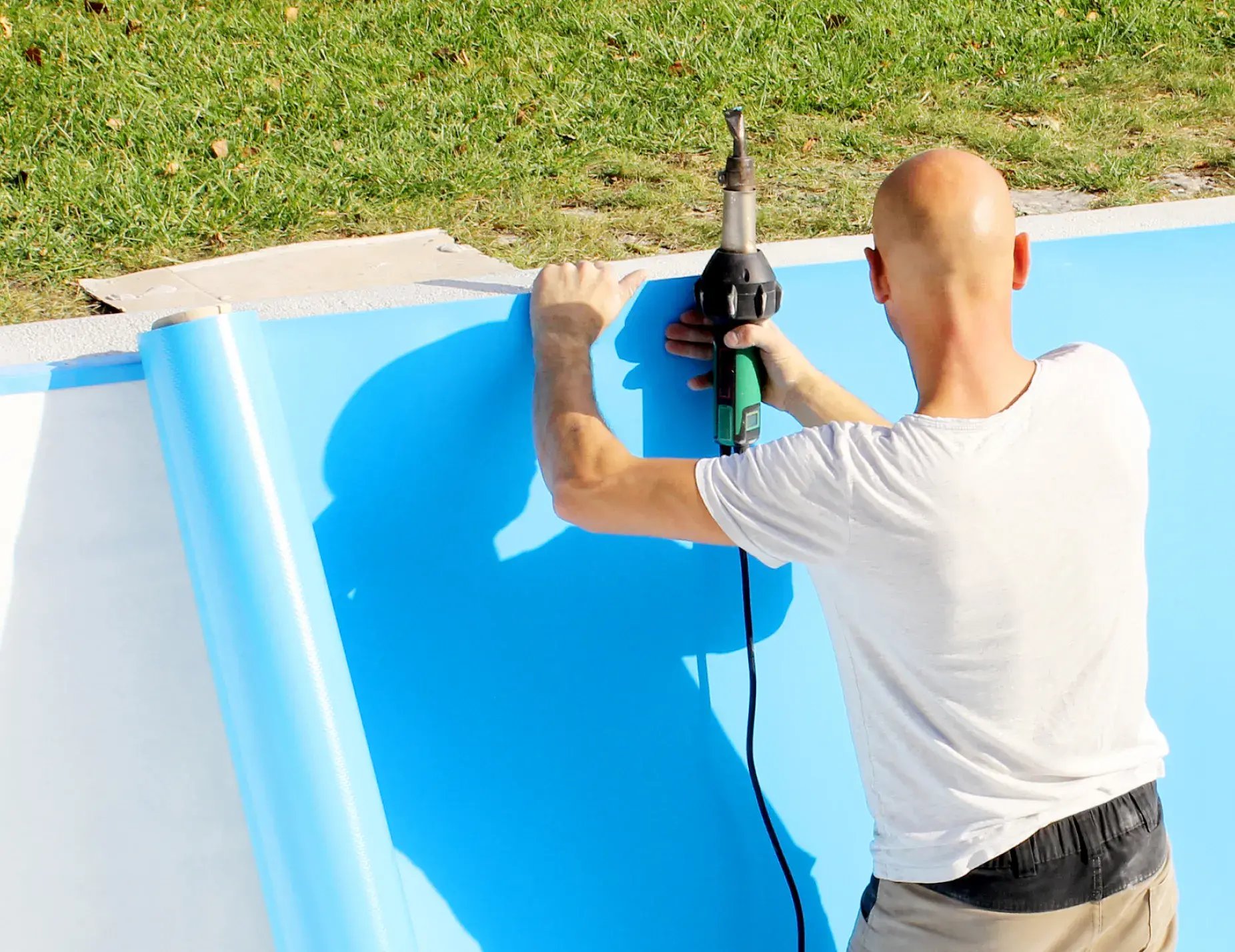
Is installing an Above Ground pool expensive?
It's a widespread misconception that raising a pool significantly above natural ground level means costly, bulky retaining walls or limits you to the pricey route of a concrete pool. However, an above ground fibreglass pool is a simple solution that allows you to achieve the modern and seamless look of an inground pool in spaces where an inground pool isn't an option. These pools are engineered with robust support, fortifying the fibreglass shell and empowering it to withstand challenging spaces. So, if you thought your options were confined to expensive retaining walls or a concrete pool, think again. The above ground fibreglass pool breaks the mould, offering strength and adaptability even in the trickiest of locations.
The initial expense for an above ground fibreglass pool shell is slightly higher compared to an inground fibreglass pool, primarily because of the additional supports required in the shell. However, the potential savings lie in the installation expenses. An above ground pool entails minimal to no excavation, eliminating the need for costly digger services and the unexpectedly high expenses associated with soil removal. Without excavation, the labour costs for an above ground pool are reduced, and there's no risk of encountering rocks, as can happen with inground pool installations.
What do you put an Above Ground Pool on?
One of the frequently asked questions we receive revolves around what goes underneath an above ground pool. The material used depends on the site and a reputable manufacturer will want to discuss your site before you purchase the pool. With an above ground pool it's imperative that it is placed on an appropriate surface and if there is a slope you will want to discuss this with the manufacturer. Ask if you can talk to the manufacturer to ensure you use the correct material, it’s best to get an understanding of the requirements from the outset.
Conclusion
Opting for an above ground pool becomes an excellent choice for locations facing challenging conditions, like slopes or substantial rocks, where excavation costs would be too costly. They also make the seamless transition from entertaining area to pool. Although the initial cost of an above ground shell is higher than an inground pool, you need to consider the cost savings with the installation.
Talk to us if you're ready to discuss your new above ground fibreglass pool. We're here to help you make an informed decision that will get that new pool installed all the quicker.







